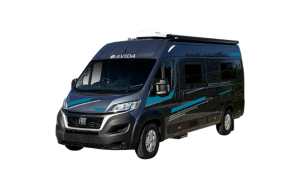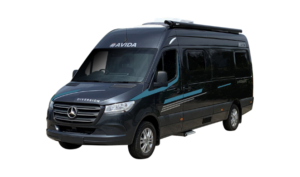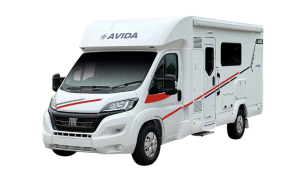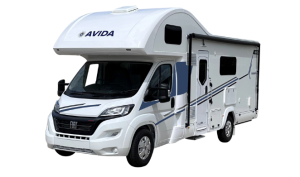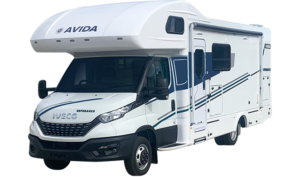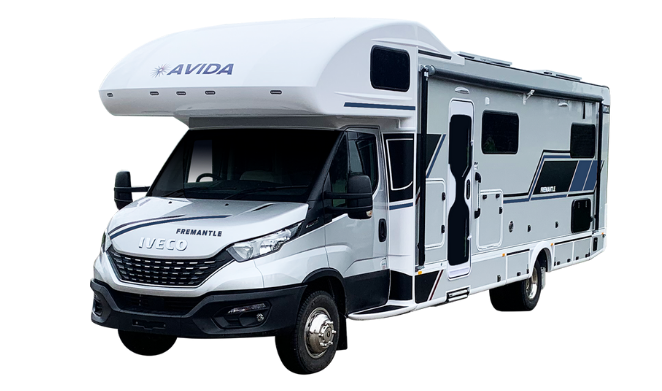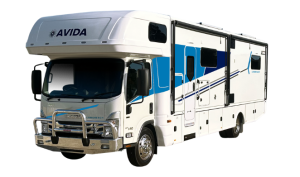Regular “exercise” is an important part of keeping your generator healthy.
It may seem strange that “not” using a machine could cause performance problems, but with RV generators that’s exactly the case. Regular “exercise” is an important part of keeping your generator healthy. Lack of exercise can cause moisture build-up and fuel system damage that make it run poorly. In fact, in as little as 30 days, the fuel in petrol-powered generators can begin to break down into gums and varnishes that clog the fuel system. Fuel varnishing results in hard starting and surging. (A surging generator never settles at a stable operating speed.)
To prevent such problems, we recommend running petrol generators at a minimum of 50 percent capacity (2000-watts, or one air conditioner for a 3600 watt generator) for two hours at least once every four weeks. A long two-hour exercise period is preferable to several short periods.
Determining Your Generator’s Power Capability
To determine what your generator can power, use the chart to estimate the total combined watts of all the appliances, lamps, battery chargers, air conditioners and other electrical products you typically use at the same time. (All electrical appliances and lights are labelled with their power requirements expressed in watts or amps). You can use any number of appliances simultaneously, as long as their combined wattage doesn’t exceed the electrical output of your generator, or your RV’s circuit breaker rating.
| Appliances | Ave Required Watts | Amps |
| Air Conditioner | 1700 | 7-8 |
| Battery Charger | Up to 3000 | 6-7 |
| Computer | 50-100 | 1 |
| Electric Blanket | 50-200 | 0.2-1.0 |
| Fan | 25-100 | 0.2-1.0 |
| Frying Pan/Wok | 2000 | 8 |
| Hair Dryer | 1500 | 6 |
| Iron | 1500-2400 | 10 |
| Microwave/Convection Oven | 700-1500 | 6-7 |
| Refrigerator | 400-1000 | 2 |
| Space Heater | 1000-1500 | 4-6 |
| Stove (per element) | 350-1000 | 4-5 |
| Television | 200-600 | 1-3 |
| Toaster | 1200 | 5 |
| DVD Player | 150-300 | 0.2-1.0 |
| Washer/Dryer | 2000-2250 | 8-9 |
| Water Heater | 1300-1500 | 7-8 |
| Rapid Boil Kettle | 2100-2400 | 9-10 |
*average guide only
Managing Electrical Loads
If you try to operate too many things at once, you’ll “overload” the generator. You’ll know because the generator may start to surge or the circuit breakers on the generator or the main coach electrical panel will trip open, stopping the flow of power. Battery charging loads can also overload your generator and you may not realize this is happening because the charging may start automatically. Be aware of how large this “invisible” load can be.
Air conditioners need “reserve” power to start. Too much base load can prevent air conditioners from starting. Air conditioners typically draw 1400-2400-watts, depending on size and operating conditions (more power is needed at high temperature or humidity). During start-up, air conditioners can draw 3-4 times that amount.
Battery chargers come on automatically and can draw a large load (up to 3000-watts). Manage your electrical loads by adjusting battery charge rates to best suit your needs. Consult your inverter/charger manual or manufacturer.
NOTE: The generator will continue to run after a circuit breaker trips. Turn off all appliances and reset the breaker. If the breaker trips again with all electrical loads off, you may have a short circuit in your wiring. Turn off the generator and contact a qualified electrician.
The DO’s and DONTS of better generator performance
- DO keep your generator clean by wiping it periodically with a clean cloth.
- DO turn off all appliances in cold weather before starting your generator.
- DO check owners manual for periodic maintenance schedule.
- DO check the exhaust system regularly for damage or leaks.
- DO make sure the exhaust pipe extends out at least one inch beyond the vehicle perimeter.
- DO check the air filter periodically and clean it by tapping it on a flat surface. Never wash it in solvents or blow it out with an air hose.
- DO exercise your generator regularly.
- On diesel models, DO make sure that you use clean fuel, important for proper performance.
- DO change your fuel filter. The fuel filter is an often forgotten part of any engine. Your generator has one too. It removes bits of debris from the fuel to prevent clogging the carburettor jets. Over time, the fuel filter collects enough material to become plugged, which restricts fuel flow and reduces the generator’s power delivery. So be sure to change the fuel filter on a regular maintenance schedule.
- DON’T run the generator for long periods of time without using it to power appliances. It wastes fuel and may cause the engine to misfire.
- DON’T attempt to adjust the carburettor, governor, choke, etc., yourself.
- DON’T start or stop the Generator while under load, switch items off first.

